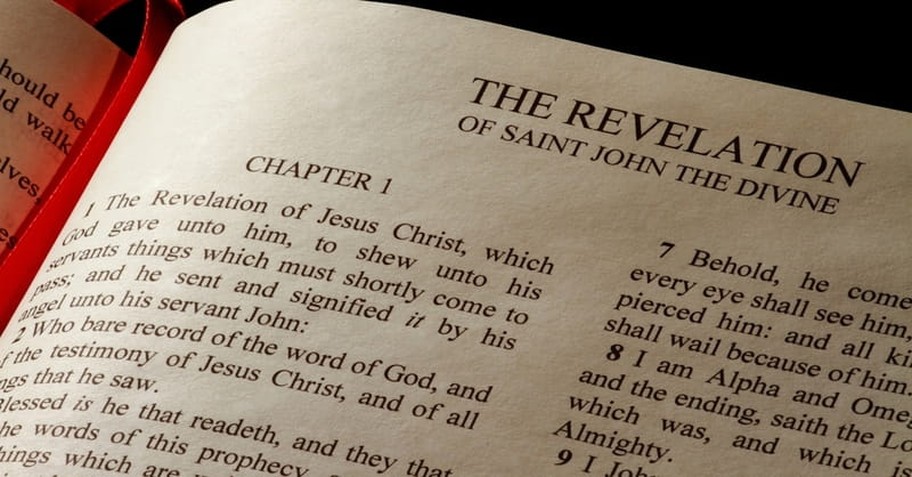What is "Inerrancy & How "Inerrant" is the Bible?

What do we mean when we affirm the inerrancy of the Bible? The importance of that question has not diminished in the least. It is as crucial today as it was 100 years ago. So let’s look at ten things that will help us understand what we mean (and don’t mean) when we speak of an inerrant Bible.
First, though, it would be helpful to note that among evangelicals, two views of biblical inerrancy have dominated the landscape. Some embrace what has been called “Limited Inerrancy.” One of the more able and articulate defenders of this view is Daniel Fuller. According to Fuller and those who follow his lead, the “inerrancy” of a book or piece of literature can be evaluated solely in light of the author’s intention or purpose. Does the author fulfill his/her purpose in writing? If so, the work is inerrant. If not, it is not. The purpose of the Bible, they say, is to make us “wise unto salvation” (2 Tim. 3:15). The purpose of the Bible is not to make us wise unto botany or geology or astronomy or history. Rather, according to Fuller, the biblical writers declare that their purpose was to report the events and meaning of the redemptive acts of God in history so that men might be made wise unto salvation. By this criterion, says Fuller, the Bible is inerrant. It perfectly lives up to its purpose. It never fails to fulfill its purpose or intent of making the reader wise unto salvation.
Photo Courtesy: Thinkstock

What is Inerrancy? Defining "Inerrant Bible"
How, then, should we define inerrancy? Consider these definitions of inerrancy, each of which makes an excellent contribution to our understanding of what is at stake:
"exemption from error: infallibility" (Merriam-Webster)
“Inerrancy will then mean that at no point in what was originally given were the biblical writers allowed to make statements or endorse viewpoints which are not in conformity with objective truth. This applies at any level at which they make pronouncements” (Roger Nicole).
“Inerrancy means that when all facts are known, the Scriptures in their original autographs and properly interpreted will be shown to be wholly true in everything that they affirm, whether that has to do with doctrine or morality or with the social, physical, or life sciences” (Paul Feinberg).
“When all the facts are known, the Bible (in its original writings) properly interpreted in light of which culture and communication means had developed by the time of its composition will be shown to be completely true (and therefore not false) in all that it affirms, to the degree of precision intended by the author, in all matters relating to God and his creation” (David Dockery).
“Except for the types of textual corruption that can arise in the course of repeated copying, the Bible offers an accurate, though not comprehensive, description and interpretation of the world and human history from the creation to the rise of the Christian church, as well as a reliable record of divinely revealed truths about God and his plans for humanity, which careful exegesis can demonstrate to be internally consistent and concerning which, through fair and informed analysis, plausible solutions for apparently fundamental conflicts between it and objective extra-biblical data can be suggested” (Richard Schultz).
We turn now to ten things to keep in mind whenever we discuss the inerrancy of Scripture.
Photo Courtesy: Lightstock

The Doctrine of "Complete Inerrancy"
Since inerrancy should only be expected in the case of those biblical assertions which teach or rightly imply knowledge that makes man wise unto salvation, Scripture can and does err in other matters. That is to say, there are passages in the Bible which are but incidentally related or entirely unrelated to its primary purpose. These incidents or texts are called by Fuller, non-revelational matters; i.e., biblical statements on such topics as geology, meteorology, cosmology, botany, astronomy, geography, history, etc. Since the principal aim or authorial intent of Scripture is not to teach truths on such matters as these, the latter may err while the former remains inerrant. The Bible is inerrant on those matters it intends to teach, on those matters that are essential to make us wise unto salvation. These, and these alone, are revelatory.
Contrary to the above perspective, the Bible makes no distinction between inspired and uninspired texts or topics nor does it place any restrictions on the kinds of subjects on which it speaks truthfully (see esp. Acts 24:14; Luke 24:25; Rom. 15:4; 1 Cor. 10:11). Thus I embrace and want to argue for what I’ll call the doctrine of “Complete Inerrancy.” Some prefer that we use the word “infallibility” which comes from the Latin infallibilitas, meaning the quality of neither deceiving nor being deceived. “Inerrancy” comes from the Latin inerrantia and simply means freedom from error. This means that Scripture does not affirm anything contrary to fact. Together both ideas express the idea that all Scripture comes to us as the very words of God and are thus reliable and true and free of error.
Photo Courtesy: Unsplash

1. The Humanity of Scripture
It is no objection to inerrancy that God used sinful, error-prone human beings in the process of inscripturation. It is one thing to say that because we are human we can make mistakes. It is another thing to say we must (see especially 2 Pet. 1:20-21). The doctrine of inerrancy, therefore, does not diminish the humanity of Scripture any more than the deity of Christ diminishes the reality of his human flesh.
2. Describing Things as They Appear
It is no objection to inerrancy that sometimes the Bible describes things as they appear, i.e., phenomenologically, rather than as they really are. We would be compelled to acknowledge an error only if the Bible explicitly taught that things appeared one way when in fact they did not, or if the Bible explicitly taught that things were one way when in actual fact they were altogether other. But when the Bible says that an event appears in a particular way, that is to say, it seems to the naked eye and from the vantage point of human observation to be a particular way, when in fact it actually is another way, is not an error.
Photo Courtesy: Lightstock
.800w.tn.jpg)
3. Figures of Speech and Symbolic Language
It is no objection to inerrancy that God often accommodates himself to human language and experience when making known his will and ways in Scripture. Similarly, it is no objection to inerrancy that the Bible contains figures of speech. Some erroneously believe that inerrancy requires that everything in the Bible be taken literally, as if to suggest that this doctrine means that God literally has wings and that mountains literally leap for joy, etc. But truth is often expressed in non-literal or figurative and symbolic language.
4. Emphasizing Concepts or Doctrines More than Others
Inerrancy is perfectly compatible with the fact that the Bible emphasizes certain concepts or doctrines more than others. Some have drawn the unwarranted conclusion that since the Bible does not emphasize, say, geology, that on those occasions when it does speak geologically it speaks erroneously. It is true that the declaration “Jesus Christ, [is] risen from the dead” (2 Tim. 2:8) is more important than “Erastus remained at Corinth” (2 Tim. 4:20). But the comparative unimportance of the latter does not necessitate its falsity.
Photo Courtesy: Thinkstock

5. Grammatical Errors and Meaning
It is no objection to inerrancy that the authors of Scripture make occasional errors in grammar. A statement can be ungrammatical in its style while entirely true in its content. As John Frame points out, “’I ain’t goin’ is considered less proper than ‘I am not going.’ But the meaning of both phrases is clear. They say the same thing, and they can both express truth” (The Doctrine of the Word of God, 175).
6. Different Interpretations
It is no objection to inerrancy that our interpretations of the Bible are less than uniform. The explanation for disparate interpretations must rest with the interpreter, not with the text. The fact that I am a credo-baptist (only believers should be baptized) and one of my close friends is a paedo-baptist (he practices infant baptism) means that one of us is wrong, but not that Scripture is. Thus, inerrancy is still true in spite of the fact that the Bible is not equally clear in every place. In other words, the inerrancy of Scripture does not guarantee its complete lucidity. Even the Apostle Peter acknowledged that the Apostle Paul wrote some things “that are hard to understand” (2 Pet. 3:16). But the complexity and difficulty of what Paul wrote doesn’t mean it is less true or less accurate than anything Peter or Luke or John may have written.
Photo Courtesy: Thinkstock

7. Reporting v. Approving
It is no objection to inerrancy that the Bible records lies and unethical actions. We must distinguish between what the Bible merely reports and what it approves, between descriptive authority and normative authority.
8. The Relationship Between Precision and Truth
It is no objection to inerrancy that authors of the NT cite or allude to the OT with less than verbal precision. We must be careful not to artificially impose on authors in the first century the literary standards of the twenty-first century. Matthew, Mark, Luke, and John, for example, had never heard of Kate Turabian or the The Chicago Manual of Style!
Related to the above is the fact that the authors of Scripture round off or approximate numbers and measurements. Thus, alleged “inaccuracies” must be judged by the accepted standards of the cultural-historical context in which the author wrote, not by the scientifically and computerized precision of 21st century technology. “The limits of truthfulness,” notes Grudem, “would depend on the degree of precision implied by the speaker and expected by his original hearers” (Systematic Theology, 91). John Frame agrees, reminding us that “precision and truth are not synonyms, though they do overlap in meaning. A certain amount of precision is often required for truth, but that amount varies from one context to another” (171). For example, if you asked me how old I was when I wrote this paragraph, I would say, “67.” But that is not precise. I was literally 67 years, 1 month, 11 days, 7 hours, and 22 minutes old. Although I did not answer you precisely, I did answer you truthfully. Or if you wanted to know how far I live from my church office, I would be truthful in saying “10 miles,” although the precise distance is 9.4. Thus, as Frame notes, inerrancy “means that the Bible is true, not that it is maximally precise. To the extent that precision is necessary for truth, the Bible is sufficiently precise. But it does not always have the amount of precision that some readers demand of it. It has a level of precision sufficient for its own purposes, not for the purposes for which some readers might employ it” (173).
Photo Courtesy: Thinkstock

9. Partial Description is Not Necessarily a False Description
It is no objection to inerrancy that the recorded account of certain events is not exhaustive in detail. That the description of an event is partial does not mean it is false. Inerrancy simply means that when Scripture does speak, however, extensive or minimal it may be, it speaks accurately. Related to this are those instances when two authors record the same event from differing perspectives and for different purposes. Thus, it is no error that Matthew mentions one angel at the tomb of Jesus (Matt. 28:2) while Luke mentions two (Luke 24:4). After all, if there were two, there was assuredly one. If Matthew had said there was “only” one angel and Luke had said there were two, we’d have a problem. But such is not the case.
10. The Use of Uninspired Sources
It is no objection to inerrancy that the biblical authors used uninspired and errant material in composing Scripture. Inerrancy simply means that when they do quote or borrow from uninspired sources they do so accurately. It is no objection to inerrancy that we cannot, at this time, harmonize all allegedly disparate events or data. This would make the authority of the Bible depend on the resourcefulness of humans. It would also indicate that we have learned little from history, for on countless occasions historical, archaeological, exegetical, and scientific discoveries have resolved what were apparent contradictions in the Bible.
Photo Courtesy: Thinkstock

The Truthfulness of the Bible
So, why is this doctrine or concept of Scripture as verbally, plenarily, and inerrantly inspired so critical? J. I. Packer answers by reminding us that “biblical veracity and biblical authority are bound up together. Only truth can have final authority to determine belief and behavior, and Scripture cannot have such authority further than it is true. A factually and theologically trustworthy Bible could still impress us as a presentation of religious experience and expertise, but clearly, if we cannot affirm its total truthfulness, we cannot claim that it is all God’s testimony and teaching, given to control our convictions and conduct” (Packer, Truth and Power, 134).
This article originally appeared on SamStorms.com. Used with permission.
Sam Storms is an Amillennial, Calvinistic, charismatic, credo-baptistic, complementarian, Christian Hedonist who loves his wife of 44 years, his two daughters, his four grandchildren, books, baseball, movies, and all things Oklahoma University. In 2008 Sam became Lead Pastor for Preaching and Vision at Bridgeway Church in Oklahoma City, Oklahoma. Sam is on the Board of Directors of both Desiring God and Bethlehem College & Seminary, and also serves as a member of the Council of The Gospel Coalition. Sam is President-Elect of the Evangelical Theological Society.
Photo Courtesy: Thinkstock
Originally published March 28, 2018.






